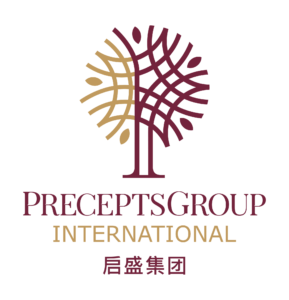Personal
Corporate Executor / Trustee

The role of an Executor
An Executor is someone chosen in a Will to handle a person’s assets and liabilities.
The Executor takes on the important role of adminstering the deceased estate, such as managing assets and following the instructions in the Will.
This should include:
Checklist
Asset
Inventory
- Compile a detailed list of the deceased person’s assets
Probate
Process
- Initiate the probate process
- Provide the original copy of the Will
Debts &
Expenses
- Identify and notify potential creditors
- Manage outstanding debts, taxes and expenses from the estate
Clear
Accounting
- Have clear record of inflows and outflows
- Safeguard the estate’s assets
Communication
with Beneficiaries
- Keep beneficiaries informed of progress
Legal &
Administrative Tasks
- Handle any disputes that may arise
- Complete administrative tasks like closing accounts and cancelling subscriptions
Distribution
of Assets
- Follow the instructions in the Will
- May involve selling property, transferring ownership, or distributing specific items to beneficiaries
Closing of
the Estate
- Prepare a final accounting of the estate’s assets, expenses and distribution
This job can be tough, especially for complicated estates. Appointing family members as Executors might be hard for them, especially when they’re already emotionally overwhelmed with the loss of a loved one.
Appointing a professional Executor may be a better option as it can alleviate the challenges and emotional strain associated with administering a loved one’s assets.

Value of a corporate Executor
In Singapore, one such option is appointing a licensed trust company to act as the corporate executor. The question is how different it is between appointing a corporate Executor and appointing an individual as the Executor? A corporate executor is useful in the following scenarios:
- When the testator has no reliable individual to act as the executor. This could be due to a small nuclear family or when all the beneficiaries are minors
- Potential conflict among family members and avoidance of disputes
- Family members are all overseas
Assessing the value of a Corporate Executor in Estate Administration
Comparison of an Individual Trustee and Corporate Trustee
|
|
Individual Trustee
|
Corporate Trustee
|
|---|---|---|
|
Objectivity
|
• Have personal knowledge, relationships and familiarity with the family dynamics, which can lead to conflicts of interests.
• Usually accepted based on a personal relationship and favour. |
• Objective in decision-making.
• Not influenced by personal relationship or family dynamics. • Reduces frictions amongst family members and maintain harmony. • Higher level of expectation on fiduciary duty to the trust. |
|
Expertise
|
• Lack of professional expertise can pose challenges in handling complex trust matters.
|
• Dedicated expertise in trust administration.
• Experienced in trust matters arising for day-to-day handling of past and existing trusts. • Structured approach to managing trusts, ensuring compliance with regulations and best practices. |
|
Succession Planning
|
• A change of trustee requires a deed of appointment and transfer of the Trust’s assets to the new Trustee. This can be cumbersome.
|
• If directors or employees of the corporate Trustee change, the corporate Trustee remains the same legal entity, and there is no need to transfer assets to another entity.
|
|
Liability
|
• The Trustee is responsible for the Trust’s affairs and debts and can be held personally responsible.
|
• A company is a separate legal entity, and the directors of the company have limited personal liability.
|
|
Continuity and Perpetuity
|
• Limited to the age, health or changes in personal circumstances.
• May resign, become incapacitated and disrupt the trust administration. |
• Advantage of continuity and perpetuity.
• Consistent management of the trust assets over the long term. |
|
Cost
|
• Zero to low fees, especially if a family member or a close friend may serve without compensation.
|
• Ongoing annual fees based on a percentage of the trust assets.
|
Case Study of a recent case we handled
In one of our recent experiences administering an estate, Precepts Trustee spent days going through the home of a recently deceased person , screening through and collecting his documents and selling his items that were no longer useful for his surviving family members. Fulfilling one of the responsibilities of an Executor.
In the case cited above, the deceased left behind family members who were overseas and it was impractical for them to travel to Singapore and settle estate matters over a long duration. Compounded by the unexpected nature of passing, numerous personal items were left unattended in the home.
In its capacity as the corporate Executor, Precepts Trustee undertook the meticulous task of navigating through an extensive inventory of items left behind by the deceased. This encompassed sorting through stacks of personal documents, household items, and even valuable jewellery.
The urgency of the situation was heightened by the fact that the deceased’s last residence was a rental property, necessitating a swift clearing process to avoid accruing additional rental costs for the estate.
Ultimately, with the assistance of some friends of the deceased, Precepts Trustee managed to clear the property within a month and returned the property to the landlord.
While this scenario might resonate with those who have encountered similar challenges in managing a loved one’s estate, it underscores the unpredictability of relying on family or friends as executors.
Not every testator has access to reliable individuals with the time and energy to fulfil the executor’s role. Moreover, disputes among family members regarding estate administration are not uncommon.
In the realm of estate planning, it becomes evident that thorough consideration of potential challenges is paramount.
The appointment of a trustworthy executor, or even a team of executors, emerges as a crucial aspect of ensuring a smooth and efficient administration of one’s estate. This foresight becomes particularly vital in circumstances where reliable family or friends may be unavailable or disputes among heirs may arise.
Precepts Trustee stands as a testament to the importance of professional executorship in navigating such complex and sensitive matters.








